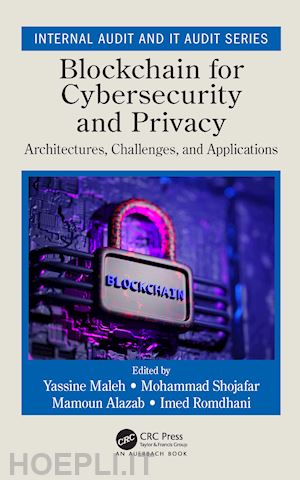Yassine Maleh is a PhD of the University Hassan 1st in Morocco in the field of Internet of Things Security and privacy, since 2013. He is Senior Member of IEEE, Member of the International Association of Engineers IAENG and The Machine Intelligence Research Labs. Dr Maleh has made contributions in the fields of information security and privacy, Internet of Things Security, Wireless and Constrained Networks Security. His research interests include Information Security and Privacy, Internet of Things, Networks Security, Information system and IT Governance. He has published over than 50 papers (Book chapters, international journals and conferences/workshops), and 3 edited books and 1 authored book. He is the editor in chief of the International Journal of Smart Security Technologies (IJSST). He serves as an Associate Editor for IEEE Access (2019 Impact Factor 4.098), the International Journal of Digital Crime and Forensics (IJDCF) and the International Journal of Information Security and Privacy (IJISP). He was also a Guest Editor of a special issue on Recent Advances on Cyber Security and Privacy for Cloud-of-Things of the International Journal of Digital Crime and Forensics (IJDCF), Volume 10, Issue 3, July-September 2019. He has served and continues to serve on executive and technical program committees and as a reviewer of numerous international conference and journals such as Elsevier Ad Hoc Networks, IEEE Network Magazine, IEEE Sensor Journal, ICT Express, and Springer Cluster Computing. He was the Publicity chair of BCCA 2019 and the General Chair of the MLBDACP 19 symposium. Mamoun Alazab is the Associate Professor in the College of Engineering, IT and Environment at Charles Darwin University, Australia. He received his Ph.D. degree is in Computer Science from the Federation University of Australia, School of Science, Information Technology and Engineering. He is a cyber security researcher and practitioner with industry and academic experience. Dr Alazab’s research is multidisciplinary that focuses on cyber security and digital forensics of computer systems including current and emerging issues in the cyber environment like cyber-physical systems and the internet of things, by taking into consideration the unique challenges present in these environments, with a focus on cybercrime detection and prevention. He looks into the intersection use of machine learning as an essential tool for cybersecurity, for example, for detecting attacks, analyzing malicious code or uncovering vulnerabilities in software. He has more than 100 research papers. He is the recipient of short fellowship from Japan Society for the Promotion of Science (JSPS) based on his nomination from the Australian Academy of Science. He delivered many invited and keynote speeches, 27 events in 2019 alone. He convened and chaired more than 50 conferences and workshops. He is the founding chair of the IEEE Northern Territory Subsection: (Feb 2019 – current). He is a Senior Member of the IEEE, Cybersecurity Academic Ambassador for Oman's Information Technology Authority (ITA), Member of the IEEE Computer Society's Technical Committee on Security and Privacy (TCSP) and has worked closely with government and industry on many projects, including IBM, Trend Micro, the Australian Federal Police (AFP), the Australian Communications and Media Authority (ACMA), Westpac, UNODC, and the Attorney General’s Department. Mohammad Shojafar received his PhD in Information Communication and Telecommunications (advisor Prof. Enzo Baccarelli) from Sapienza University of Rome, Italy as the second rank university in QS Ranking in Italy and top 100 in the world with an Excellent degree in May 2016. He is Intel Innovator, Senior IEEE member, and Senior Lecturer in the 5GIC/ICS at the University of Surrey, Guildford, UK. Before joint to 5GIC, he was served as a Senior Member in the Computer Department at the University of Ryerson, Toronto, Canada. He was Senior Researcher (Researcher Grant B) and a Marie Curie Fellow in the SPRITZ Security and Privacy Research group at the University of Padua, Italy. Also, he was a Senior Researcher in the Consorzio Nazionale Interuniversitario per le Telecomunicazioni (CNIT) partner at the University of Rome Tor Vergata contributed to 5g PPP European H2020 ``SUPERFLUIDITY'' project for 14 months. Dr. Mohammad was principle investigator on PRISENODE project, a 275,000 euro Horizon 2020 Marie Curie project in the areas of network security and Fog computing and resource scheduling collaborating between the University of Padua and University of Melbourne. He also was a principal investigator on an Italian SDN security and privacy (60,000 euro) supported by the University of Padua in 2018. He was contributed to some Italian projects in telecommunications like GAUChO - A Green Adaptive Fog Computing and Networking Architecture (400,000 euro), S2C: Secure, Software-defined Cloud (30,000 euro), and SAMMClouds- Secure and Adaptive Managem











